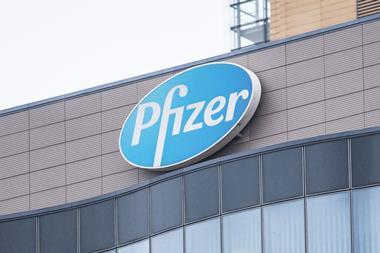Government aims to crack down on corporate tax avoidance through ‘inversion’ deals
Unexpected and aggressive moves from the US Treasury have torpedoed the proposed mega-merger of Pfizer and Allergan. On Monday, the department proposed its latest reforms to target so-called inversions, whereby large US corporations avoid US taxes by moving their tax residence abroad through merger deals.

Analysts say the new rules seemed to specifically target the Pfizer–Allergan deal. On Wednesday morning a stunned Pfizer raised the white flag and conceded the deal was sunk; it blamed the Treasury and said it would pay $150 million ($106 million) to Allergan to cover expenses.
Pfizer is believed to have $74 billion of foreign profits offshore, on which it would have to pay the 35% US corporation tax rate if brought home. Moving abroad helps a firm access these earnings while avoiding the tax.
But the Treasury also hit the ability of companies to avoid taxes through ‘earnings stripping’. This occurs when a foreign parent lends money to its US subsidiary, which pays interest on the loan, deductible at the 35% US tax rate. The gain for the foreign parent is taxed at its home country’s rate, say 12.5% in Ireland – where Allergan is based – or 20% in the UK.
Treasury secretary Jacob Lew took aim at what he termed serial inverters. ‘They acquire multiple US firms over a short period of time. This increases their size and reduces the negative tax consequences of a subsequent inversion,’ Lew explained. Shares of the foreign company made up of assets acquired from American companies will now be excluded from calculations for three years prior. This places the foreign company under a more stringent set of inversion rules.
The tenor of the new document is significant. It says, if you want to play around the edges, we can change the edges
Allergan [then Actavis] started its inversion journey in 2012 when it merged with Watson to increase its US presence, then bought Warner Chilcott for $8.5 billion, moving the combined entity to Ireland. Actavis then swallowed Forest Laboratories of the US in July 2014 for $28 billion, before snapping up Allergan for $66 billion last year. This fattening up facilitated its proposed purchase of Pfizer, but Allergan now falls foul of Treasury’s new rules.
The new move seemed tailor-made to undo the Pfizer deal, according to most analysts. ‘It didn’t specifically say Pfizer–Allergan, but it described the deal pretty well,’ says Steve Brozak, president of investment research firm WBB Securities. Shire, for example, has said its merger with Baxalta will proceed, despite the new rules. The treasury has twice introduced changes to trip up inversions, but the tenor of the new 300-plus page document makes it clear the department will tackle future deals robustly.
‘The United States today excels in healthcare and energy, and it is no coincidence you see a lot of [inversion-type] transactions in these spaces. The [Obama] administration is saying it is not happy and is going to make sure there are consequences,’ says Brozak. ‘The tenor of the new document is significant. It says, fine, if you want to play around the edges, we can change the edges.’
The combination of Allergan and Pfizer seemed more motivated to accessing deferred earnings Pfizer has offshore than to strip earnings out of the US, says Steve Rosenthal of the non-partisan Urban-Brookings Tax Policy Center, US. ‘Pfizer has done a pretty effective job of stripping earnings out of the US by transferring its patents and intellectual property abroad. I think the major tax motivation for the transaction was allowing the combined company access to the $74 billion Pfizer has offshore.’
The treasury again called for Congress to enact new tax laws to deal definitively with tax inversions. However, this seems unlikely during an election year. ‘I’ve argued that the US should adopt an exit tax law, so that when US corporations depart our country they trip an immediate tax on deferred earnings,’ Rosenthal adds. ‘That would help deter US companies from accumulating earnings abroad and putting themselves in a bind where they need to invert to access those earnings tax free.’
Pfizer’s chief executive, Ian Read, had previously said that the move was not driven simply as a tax transaction. Analysts now expect Pfizer to proceed with plans to split in two, with one part consisting of patent-protected innovative drugs and the other with older products. The company has said it will decide on that potential course by the end of the year.












No comments yet